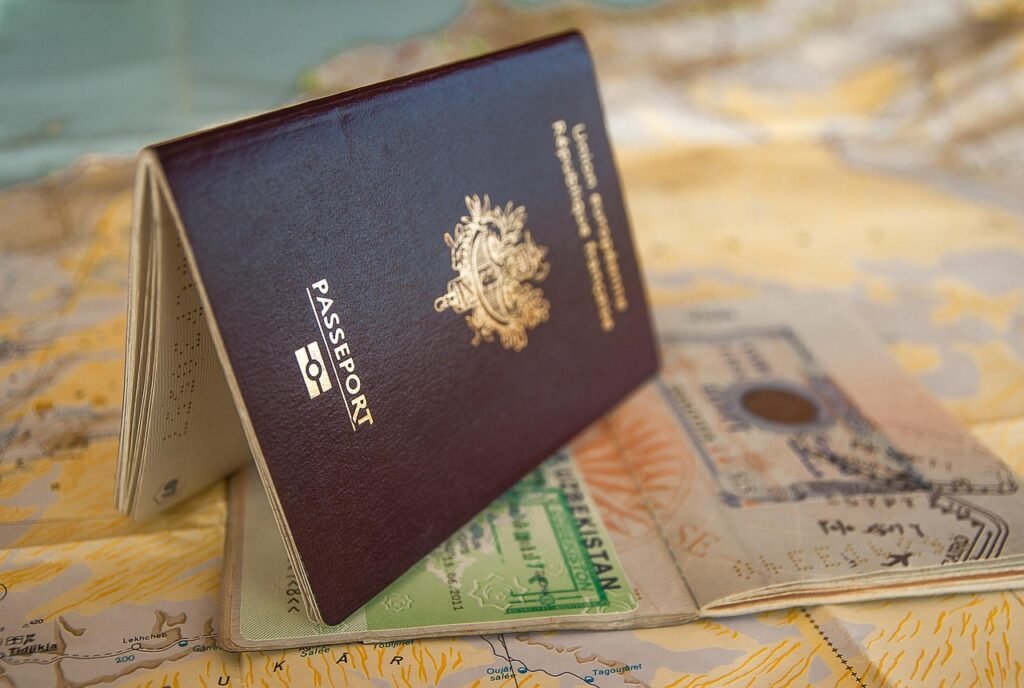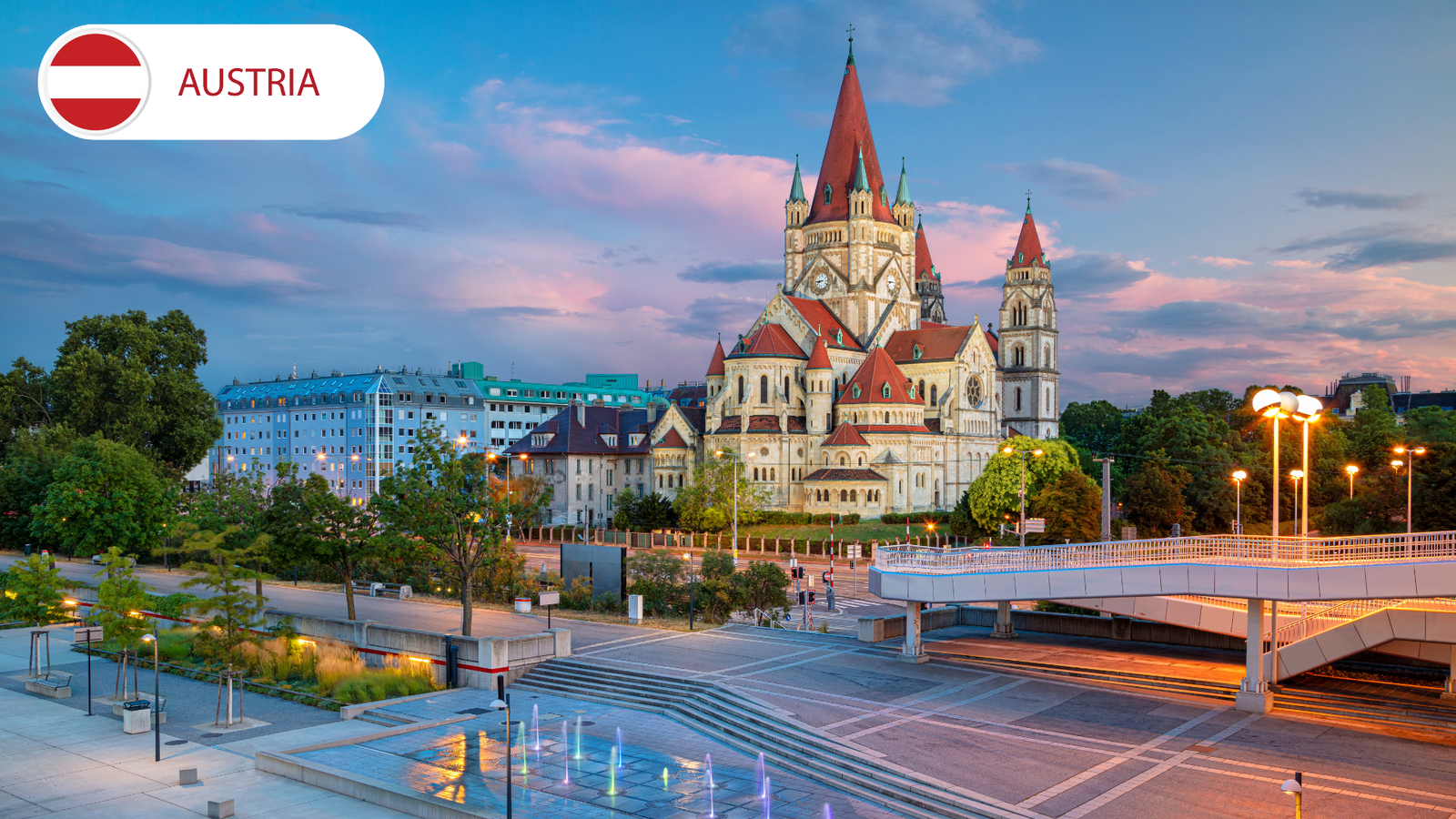Why Study in Austria?
Austria offers world-class education in a safe, clean, and culturally rich environment at the heart of Europe. Renowned for its high academic standards, Austria’s universities and applied sciences institutions provide a wide range of programs, including many English-taught degrees, especially at the master’s and PhD levels.
Tuition fees at public universities are relatively low for international students, and the country boasts a high quality of life with efficient public transport, excellent healthcare, and a vibrant social scene. Austria also allows students to work part-time during their studies, making it easier to support living expenses.
Beyond academics, studying in Austria opens pathways to long-term residency and work opportunities in Austria and the broader European Union. With its strong economy, strategic location, and emphasis on innovation and research, Austria is an excellent destination for Bangladeshi students seeking quality education and future career prospects in Europe.

- Study in
Austria
Study Programs in Austria
Study Programs in Austria for International (including Bangladeshi) Students:
Schooling / Primary & Secondary Education
Austria offers public, private, and international schools. Public schools are free but teach primarily in German. International schools follow curricula such as IB, British, or American systems and charge tuition fees. These are ideal for expatriate families or students planning to continue education in English-speaking institutions.
Diploma & Vocational Programs
Austria has a strong reputation for vocational education through its Berufsbildende Höhere Schulen (BHS) and technical colleges. These programs focus on practical skills in fields such as engineering, hospitality, healthcare, IT, design, and mechatronics. Programs are offered at the upper-secondary and post-secondary levels.
Bachelor’s Degrees
Public and private universities in Austria offer a wide range of undergraduate programs. While most are taught in German, there are a growing number of English-taught bachelor’s programs, especially in fields like business, international management, engineering, and environmental studies.
Master’s Degrees
Austria is known for its affordable and high-quality master’s degrees. Many public universities offer English-taught master’s programs in areas like economics, computer science, political science, architecture, life sciences, and sustainable energy. International students can often work part-time during their studies.
PhD Programs
Doctoral studies in Austria are research-intensive and often integrated into structured programs at universities and research institutions. Many PhD programs are available in English, especially in science and engineering. PhD students may receive research grants or be employed as junior researchers.

- Study in
Austria
Step-by-Step Guide
🇦🇹 Step 1: Research Universities and Programs
Explore Austrian universities offering English-taught or German-medium programs. Focus on institutions that align with your academic background and goals. Popular fields include business, engineering, environmental sciences, data science, and arts.
🇦🇹 Step 2: Check Eligibility Requirements
Review academic prerequisites, GPA requirements, and language proficiency. For English programs, IELTS/TOEFL is required; for German-taught programs, proof of German proficiency (e.g., ÖSD, TestDaF) is necessary.
🇦🇹 Step 3: Prepare and Submit Applications
Apply through the university’s online portal or Austria’s centralized system (Studienplattform or Uni Assist for some universities). Required documents include transcripts, motivation letter, CV, recommendation letters, passport copy, and language test results. Certified translations are often needed.
🇦🇹 Step 4: Explore Scholarships & Funding Options
Look into scholarships like OeAD, Erasmus+, and university-specific grants. Austria offers limited but valuable funding options for outstanding international students, including Bangladeshi nationals.
🇦🇹 Step 5: Receive Offer and Accept Admission
Once accepted, follow the university’s instructions to confirm your place. This may involve paying administrative fees or completing registration steps online.
🇦🇹 Step 6: Apply for Austrian Student Visa (Visa D or Residence Permit)
Apply for a student visa at the Austrian Embassy in Dhaka. Submit your admission letter, financial proof (showing around €12,000/year), accommodation details, health insurance, police clearance, and a valid passport.
🇦🇹 Step 7: Arrange Accommodation and Insurance
Secure student dormitory housing or private accommodation. Make sure your health insurance meets Austrian immigration requirements.
🇦🇹 Step 8: Plan Travel and Arrival
Once your visa is approved, book your flight to Austria. Carry all key documents—visa, admission letter, accommodation confirmation, proof of funds. Attend orientation or pre-departure briefings if available.

- Study in
Austria
Explore Our Partner Universities
Modul University
Webster Vienna Private University


- Study in
Austria
🇦🇹 Average Tuition Fees in Austria (2025)
Primary & Secondary School (International Schools)
€5,000 – €20,000 per year
International and bilingual schools in Austria (e.g., American, British, IB) charge tuition fees. Public schools are free but primarily teach in German and are usually accessible only to residents.
Bachelor’s Degree (Public Universities)
€1,500 – €3,000 per year (for non-EU/EEA students)
Public universities charge modest tuition for international students from outside the EU/EEA. Students from least-developed countries (including Bangladesh) may be eligible for fee waivers or reduced tuition.
Master’s Degree (Public Universities)
€1,500 – €3,500 per year (for non-EU/EEA students)
Affordable and high-quality master’s programs are available in English and German. Popular fields include technology, environmental studies, economics, and engineering.
PhD Programs (Public Universities)
€750 – €1,500 per year
PhD tuition fees are low, and many candidates receive funding through university assistantships, research grants, or fellowships.
Private Universities / Business Schools (All Levels)
€10,000 – €25,000+ per year
Private institutions and business schools charge higher fees, especially for specialized MBA, executive education, and international programs. Costs vary by institution and program.
Visa Categories for Study in Austria

Visa C (Schengen Visa – Short Stay)
For study or academic programs up to 90 days.

Visa D (National Visa – Long Stay)
For stays between 91 days and 6 months.

Residence Permit – "Aufenthaltsbewilligung – Student"
For full-time students enrolled in Austrian universities or higher education institutions.

Visa Application Checklist
Austria Student Visa Application Checklist (Bangladesh)
1. Completed Application Form
Filled out and signed Visa D application form (for long-term stays), available from the Austrian Embassy or VFS Global website.
2. Valid Passport
Passport must be valid for at least 3 months beyond your intended stay in Austria and have at least two blank pages.
3. Admission Letter
Official acceptance letter from a recognized Austrian university or higher education institution confirming full-time enrollment.
4. Proof of Financial Means
Bank statements, sponsor declaration, scholarship award, or financial guarantee showing you have sufficient funds to cover your living expenses, tuition, and travel costs.
Approximate amount: €1,200/month (as per Austrian immigration requirements).
5. Proof of Accommodation
Proof of residence in Austria – rental contract, dormitory confirmation, or accommodation guarantee from a host.
6. Passport Photos
Two recent biometric passport-sized photos meeting Austrian/Schengen photo standards.
7. Travel Itinerary
Flight reservation or detailed travel plan (not mandatory, but recommended).
8. Health Insurance
Valid travel and health insurance covering at least €30,000, valid in the Schengen area, until Austrian student insurance is activated.
9. Academic Certificates and Transcripts
Copies of diplomas, certificates, and academic transcripts (SSC, HSC, Bachelor/Master, etc.) translated into German or English by a certified translator.
10. Language Proficiency Proof
Proof of language proficiency (German or English) depending on the program requirements – such as ÖSD, IELTS, TOEFL, etc.
11. Police Clearance Certificate
A police clearance certificate issued by the Bangladesh Police, legalized and translated into German.
12. Medical Certificate
A certificate from an authorized doctor stating that the applicant is free from contagious diseases, translated into German.
13. Parental Consent (If under 18 years old)
Notarized and translated parental authorization for minors travelling alone or with one parent.
14. Payment Receipt of Visa Fee
Proof of payment of the student visa fee (approx. €150, payable in local currency at VFS).
15. Biometric Data Submission
Schedule and complete biometric data collection at the Austrian Visa Application Centre (VFS Global) in Dhaka.
Additional Notes:
All documents must be translated into German (or English, if accepted) by a certified translator.
Originals may be requested during the visa interview.
Prepare photocopies of all submitted documents as per embassy or VFS guidelines.

- Study in
Austria
Job and PR Pathways After Study
🇦🇹 Job and PR Pathways After Study in Austria
1. Job Search Visa (Rot-Weiß-Rot – Karte – Mobilität im Studium):
After completing a recognized degree in Austria, international graduates can apply for a job search visa (up to 12 months) that allows them to stay in Austria legally while looking for employment relevant to their qualifications.
2. Employment Opportunities:
Austria’s labor market offers opportunities especially in sectors like engineering, IT, tourism & hospitality, health care, and manufacturing. German language skills are highly preferred, but English-speaking roles exist, particularly in multinational companies based in Vienna, Graz, and Linz.
3. Work Permit (Red-White-Red Card):
Once you secure a job offer, you can apply for the Red-White-Red Card, a combined residence and work permit. The job must correspond to your qualifications and meet Austrian salary and labor market criteria. The card allows you to live and work in Austria for up to 24 months, renewable.
4. Permanent Residency (Daueraufenthalt – EU):
After 5 years of continuous legal residence in Austria (including student and work permits), you may be eligible to apply for permanent residency, which provides more stable rights to live and work in Austria without restrictions.
5. Pathway to Austrian Citizenship:
After 10 years of continuous residence (with at least 5 years of permanent residence status), you can apply for Austrian citizenship. Applicants must demonstrate integration, including German language proficiency (usually B1 level), knowledge of Austrian culture, and compliance with legal requirements.

- Study in
Austria
Our Support During the Process
We’re with you at every step — from your first consultation to settling into life in Austria and beyond, ensuring a smooth, informed, and successful journey.
Personalized consultation at every stage — We take the time to understand your academic goals, financial situation, and personal preferences to guide you toward the best-fit study options in Austria.
One-on-one support for admission, visa, and travel — Dedicated assistance with university applications, document preparation, student visa submissions, and travel arrangements.
Always accessible — Connect with us via call, WhatsApp, email, or in person — whatever suits you best.
Regular updates, reminders, and document reviews — Stay on track with timely updates, important deadline reminders, and careful review of your documents to avoid errors or delays.
Post-arrival check-ins and alumni mentoring — We stay connected after you arrive in Austria, offering ongoing support and linking you with alumni who’ve successfully made the journey.
Support for job search and PR planning — Guidance on job opportunities in Austria, CV/resume building, and advice on post-study work permits and permanent residency pathways.






